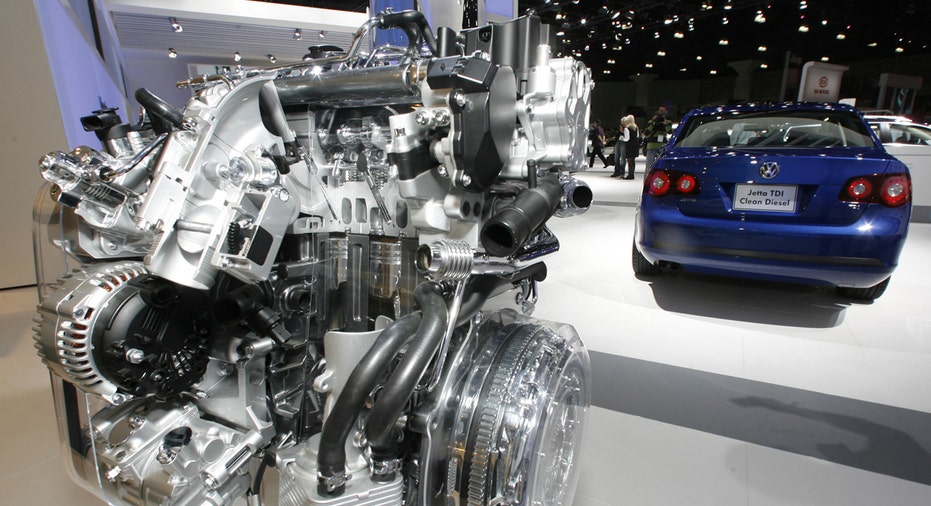Volkswagen Expects Diesel Fix in 2016, Rebates on the Table

Volkswagen is working on a plan to begin repairing vehicles at the center of an emissions-cheating probe in early 2016, and the German automaker’s U.S. chief said the company will consider offering rebates to current owners.
Michael Horn, president and CEO of Volkswagen Group of America, was grilled by lawmakers on Capitol Hill over a controversy that erupted following revelations that 11 million diesel-powered cars made by Volkswagen globally are equipped with software designed to evade clean-air standards.
Horn, a 25-year Volkswagen veteran, announced that Volkswagen has withdrawn its application to have 2016 vehicles approved by regulators. Volkswagen anticipates developing a software fix for 2015 and 2016 diesel models as soon as January. Dealers have halted the sale of these third-generation diesels, which account for 25% of Volkswagen and Audi sales in the U.S.
Generation Two vehicles could be repaired starting in the middle of next year. Horn explained that older first-generation cars need software and hardware changes to bring nitrogen oxide emissions into compliance, so repairs may not begin until later in 2016. Dealers will need five to 10 hours to service each vehicle.
Once Volkswagen initiates recalls, it could take one to two years to fix all of the roughly 500,000 affected vehicles in the U.S., Horn said. In the meantime, the Environmental Protection Agency has said the vehicles are safe and legal to drive.
“We know we can fix these vehicles to meet emissions standards,” Horn told the House Energy and Commerce Committee on Thursday.
Bringing the vehicles into compliance should not influence performance or fuel economy. Top speed may drop by one or two miles, Horn said. Volkswagen will evaluate the impact of its emissions repairs and possibly compensate customers based on its findings.
Volkswagen has provided dealers with financial assistance, including a discretionary fund to handle customer service needs.
Volkswagen has come under fire from consumers and regulators since the company acknowledged the use of a “defeat device” to pass emissions tests. The software turns on devices that clean diesel exhaust only when cars undergo testing. As a result, Volkswagen diesels sold since 2008 emit up to 40-times the amount of nitrogen oxides allowed under U.S. law.
Horn was not certain if cost was a factor in the decision to deactivate emissions control systems, adding, “I think it’s dead wrong if you put corporate profits before people.”
Volkswagen continues to investigate the issue internally, but Horn stressed that it appears the decision was not made at the corporate level. “There was no board meeting that approved this,” he said.
Horn confirmed that Volkswagen has suspended three employees. Two weeks ago, Volkswagen named Matthias Mueller, the former head of its Porsche unit, as the company’s new CEO following the resignation of Martin Winterkorn.
“With the compliance investigations, we have to streamline our processes, and…this company has to bloody learn and use this opportunity in order to get their act together. And 600,000 people worldwide have to be managed in a different way,” Horn said.
Horn was not aware of the “defeat devices” until early September. In the spring of 2014, West Virginia University released a study indicating that Volkswagen-made diesel cars did not meet regulatory standards. Horn was told that engineers would work to resolve the issue. A voluntary recall was approved in December 2014, but regulators later determined that Volkswagen’s repairs did not lower emissions.



















